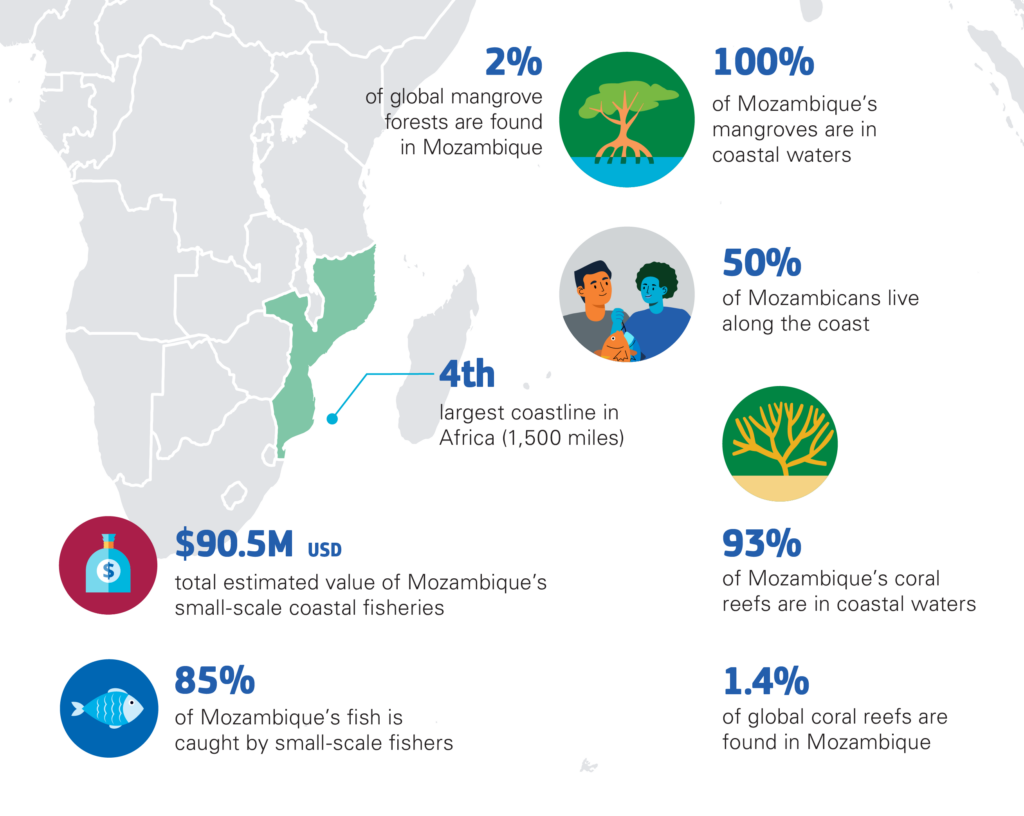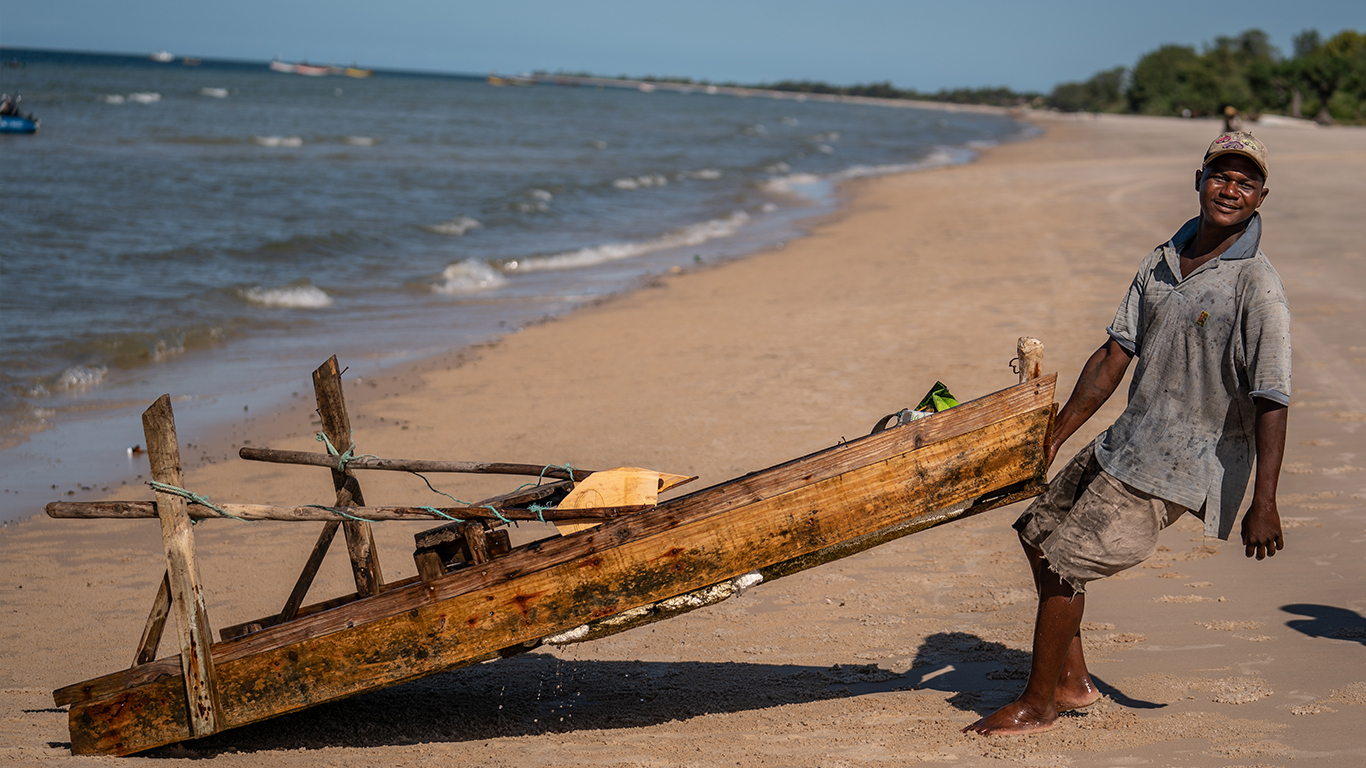Fish Forever in Mozambique
Home to Africa’s fourth largest coastline, Mozambique sustains millions of people and an economy heavily dependent on fisheries for jobs and protein. Half of Mozambicans live along the 1,500-mile coastline and its small-scale fishers catch 85% of the country’s fish. Mozambique also holds extraordinary biodiversity and is thought by many experts to be the second most biodiverse area in the world after the Coral Triangle.
Unfortunately, overfishing and destructive fishing techniques are diminishing fish catches and degrading ecosystems. National data show fish catch landings and overall catch size are declining, with small-scale fishers reporting that certain species no longer show up in their nets. It is estimated that overall artisanal catch has now declined nearly 30% over the last 25 years. Climate change will likely worsen this issue, as Mozambique’s coasts are vulnerable to cyclones, storm surges, and flooding.

Stay Connected
Sign me up for occasional emails to learn more about Rare’s work and how I can support its mission. I know I can unsubscribe at any time.
The Fish Forever Solution
About Rare’s Fish Forever program
Fish Forever is a global program to revitalize the world’s coastal fisheries. Through Fish Forever in Mozambique, Rare supports coastal communities and their local leaders to protect, restore, and manage the coastal waters and habitats on which we all depend.
Stories and Updates
Partners
Partners in Mozambique
Fish Forever is a global network of over 100 staff, 150 local partners, 1,700 coastal communities, 160,000 fishers, over 150 mayors and local government leaders, and dedicated donors and partners working together to guarantee the future of our coastal seas. Rare partners in Mozambique include Blue Action Fund (BAF), Bloomberg Philanthropies, USAID, Margareth A. Cargill Philanthropies, and many others.
Contact Us
- Mozambique
- United States
Mozambique
41 Business Centre, 12 Beijo da Mulata Road, Sommerschield 2,
Maputo, Mozambique
Email: mozambique-info@rare.org
Global Headquarters
1310 N. Courthouse Road, Suite 110, Arlington, VA, 22201
Email: info@rare.org
Phone: 703.522.5070
